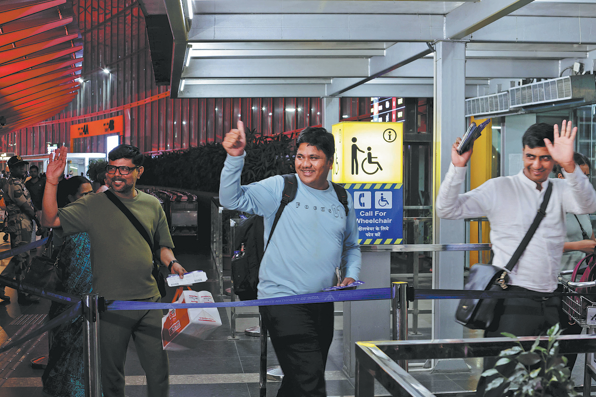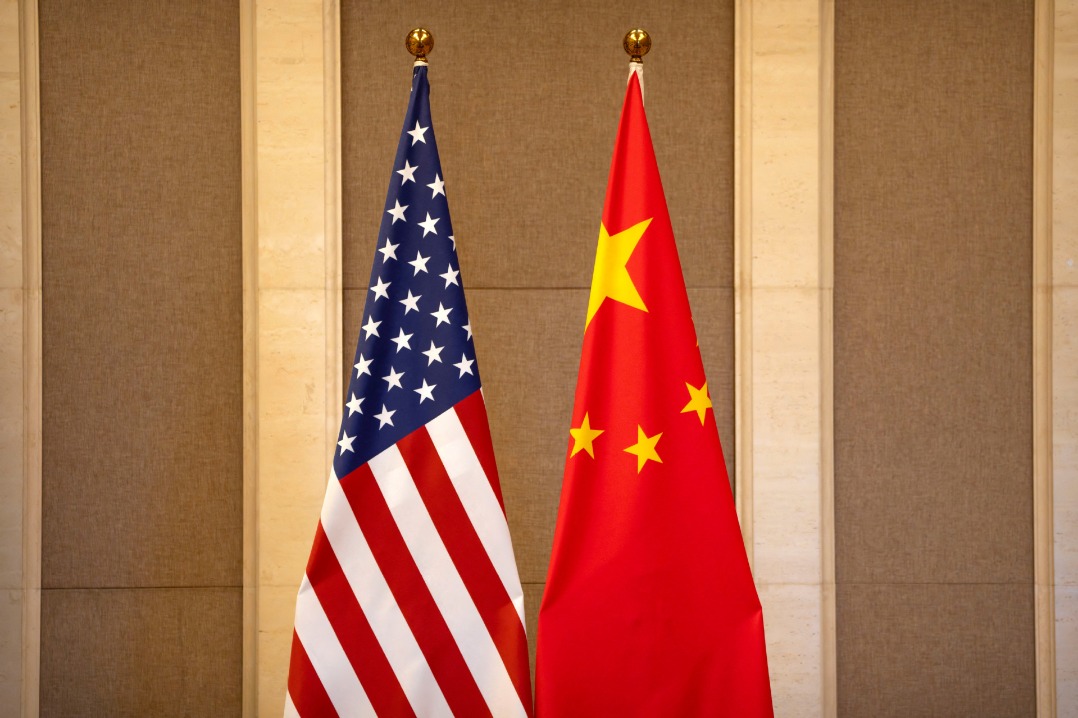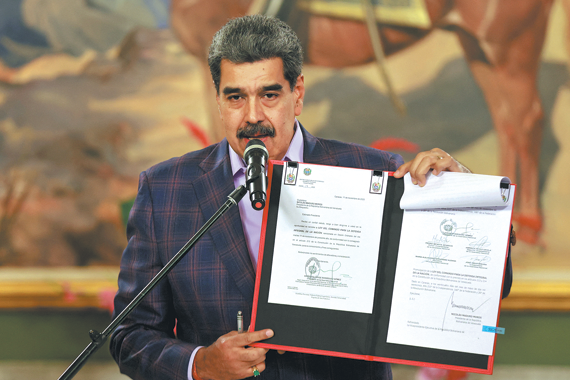Guess what Bürger means in German?

Welcome to Europe — a continent with a famously complicated linguistic map.
If one draws a circle with a radius of 500 kilometers with Paris at the center, then inside that circle alone there is French, the Belgian version of French, Dutch, Flemish that originated from it, German and its various dialects, Italian and its variants.
And if we look beyond this circle to the whole of Europe, the diversity becomes even more overwhelming. Across the continent, the number of languages in active use approaches 200. Linguists generally divide them into more than a dozen families or subgroups, ranging from the Germanic to the Romance, from the Hellenic to the Slavic, plus several languages that came from outside, such as Turkish.
This rich linguistic landscape makes Europe a paradise for philologists, but a nightmare for travelers.
In July, I went to Paris. I spoke English to the locals, but they replied to me in French, with a charming friendly smile but firm eyes that they will never compromise.
A month later, I traveled to Berlin. This time I had done my homework and spoke to the locals in their mother tongue. However, upon hearing my heavy accent and watching my red face trying to pronounce the uvular trill, they replied to me in English.
My disappointment, I must say, went beyond words.
Yet for those who do not suppose they speak German, Berlin must be one of the friendliest cities a tourist can visit. By "friendliness", I do not mean the trains, restaurants, or infrastructure. The trains into and out of Berlin, mostly run by Deutsche Bahn, habitually go off schedule as they do elsewhere in Germany, the U-Bahn often traps passengers in its automatic doors, to which I was one of the victims, while the meals are both expensive and hard to swallow.
But wherever you go, to a hotel, a cafe, or even an ice cream stand by the street, the first sentence Berlin people ask is always: "Deutsch or English?"
That small question is a great gesture that shows people in Berlin truly recognize the gap between languages, and are willing to bridge that gap through their own kindness and effort.
The friendliness of Berliners is especially valuable when we realize that linguistic gaps are often hard to cross.
For someone who only knows English or another single European language, it is sometimes possible to guess the meaning of words in other languages by their similar spelling, a trick that does work on some occasions. For example, the word university is spelled almost the same in English, German, French, Italian and Spanish, because it spread gradually across Europe through history.
But sometimes, this trick can backfire badly, especially when one encounters words that look identical but mean completely different things.
An example comes when US sent relief packages to German after World War II. People wrote a big "Gift" on the packages, which, unfortunately, means poison in German.
Dutch also has its share of such pitfalls. The word room in Dutch means "cream", while brand means "fire". Imagine your Dutch neighbor running out shouting "brand", but instead of helping or running for life, you calmly ask: "Which one? Chanel or LV?"
Moreover, a nation's language often reflects how its people think, which makes some words hard to translate, and even harder for foreigners to understand.
For instance, in English we use sense or feel. In German, there are several corresponding words, one of which is wahrnehmen, which literally means "to take or grab truth". So a German speaker can "feel the cold", or, more precisely, "grab the truth of a drop in temperature".
Even more astonishing are the languages that redefine how their speakers perceive the world. One noticeable example is the Hawaiian language, which originally had no words for east, west, north or south. Directions are described instead using mauka, meaning "toward the mountains", and makai, meaning "toward the ocean", because wherever one stands on the islands, one can always see the mountains on one side and the ocean on the other.
Just imagine centuries ago when some European traveler met a local Hawaiian, and how they tried to explain directions to each other. For people recognizing the world in two completely different ways, that gap can hardly be crossed.
The perishing gap
It cannot be denied that such linguistic diversity is one of the roots of Europe's cultural richness. Every distinct word represents a people's unique history, which explains why Europeans are so proud of their languages.
A frequently studied example is the German word Burg, meaning "castle", corresponding to the English city. From it came Bürger, not the burger as food, but citizen as an identity. Following this logic, the German Bürgermeister literally means "master of citizens", while the English mayor comes from a different source, reflecting divergent historical paths. Oh, I cannot even imagine the day when Burger King opened its first branch in Germany.
That's only one of the words that has preserved its national history inside. Life is too short to study them all, but to get to know any additional one of them grants the learner a sense of joy.
Moreover, as technology keeps advancing, even those who don't speak European languages can now travel conveniently with an AI translator in hand. During my travels I have seen, far too many times, how travelers from China or Japan talked to the apps on their smartphones and then handed their smartphone to the recipient. They can, at least, solve basic problems in life.
In some sense, Europe's linguistic diversity remains a fascinating cultural phenomenon, but in the foreseeable future, it will no longer be a major obstacle for travelers.
The author is the China Daily EU Bureau Chief Correspondent based in Brussels.

































